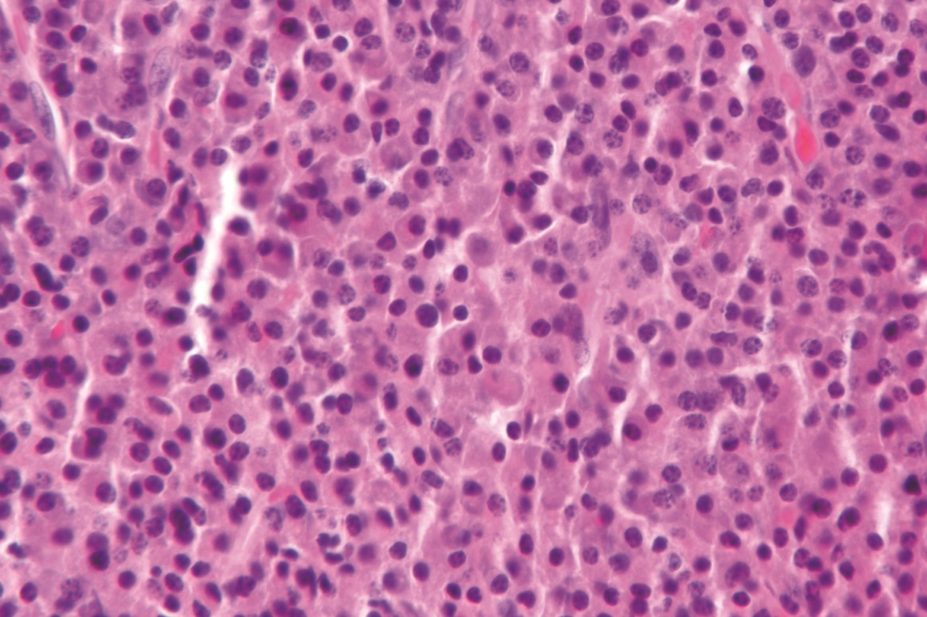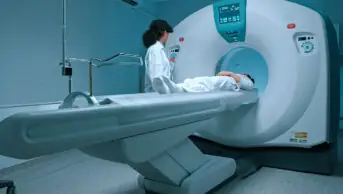
Nephron / Wikimedia Commons
A drug that targets a rare form of blood cancer in patients whose disease has relapsed has been recommended for a marketing authorisation by the European Medicines Agency (EMA).
Carfilzomib (Kyprolis) is used to treat patients with multiple myeloma — a life-threatening cancer of the plasma cells that affects around 39,000 people in the EU.
The drug is a proteasome inhibitor that has the potential to slow down the growth of the cancer. It is the first irreversible highly-selective proteasome inhibitor for this disease, according to the EU’s medicines safety watchdog.
The EMA’s Committee for Medicinal Products for Human Use recommends that the drug is given an EU licence for the treatment of patients with relapsed myeloma after at least one prior treatment and in combination with lenalidomide (Revlimid) and dexamethasone.
“It is excellent news that Kyprolis is one step closer to being licensed in Europe,” says Kate Morgan, policy and public affairs manager of the patient group Myeloma UK. “As myeloma is a relapsing and remitting cancer, there is a critical need to ensure that new treatments are made available for patients at every stage.”
The EMA’s decision to recommend carfilzomib for an EU licence follows the results of a phase III clinical trial involving 792 patients with relapsed multiple myeloma.
Patients were randomly assigned carfilzomib combined with lenalidomide and dexamethasone, or only lenalidomide plus dexamethasone. Patients given the combination therapy had an average increase of 8.7 months during which their disease did not progress compared with those patients given lenalidomide plus dexamethasone (26.3 months versus 17.6 months).
The EMA decided to fast-track the marketing assessment for carfilzomib because of its potential to address unmet medical need. It said that the drug’s side effects — anaemia, fatigue, diarrhoea, thrombocytopenia (low blood platelet counts), nausea and dyspnoea (difficulty in breathing) — were acceptable and manageable.
But it decided to monitor the drug’s safety and efficacy on the grounds of more serious side effects, which include blood abnormalities and cardiac events.
Morgan explained that like Velcade (bortezomib), another multiple myeloma therapy, Kyprolis is a proteasome inhibitor. “However, Kyprolis has been developed to specifically target a different area of the proteasome to Velcade,” she says. “It is hoped that carfilzomib will offer myeloma patients who have become refractory to Velcade the opportunity to respond to another proteasome inhibitor.”
The recommendation now has to be ratified by the European Commission.


